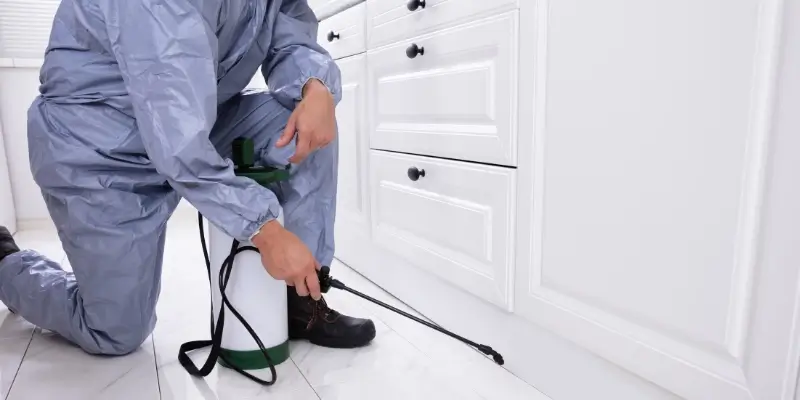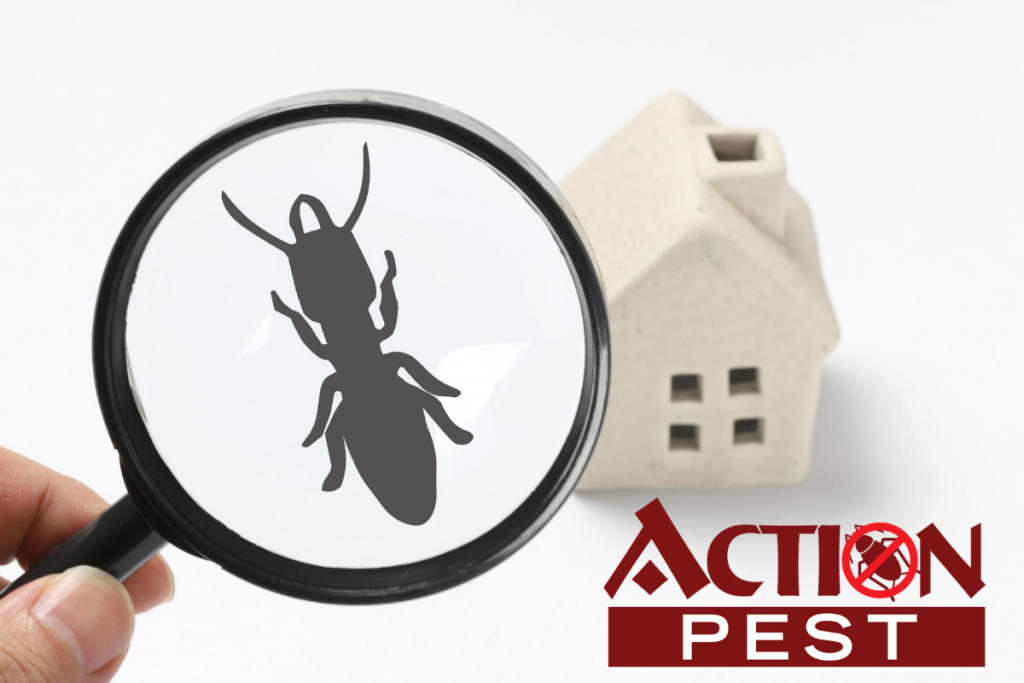Safe and Reputable Insect Control for Lasting Defense
The value of secure and dependable parasite control can not be overemphasized, particularly in a period where ecological issues are critical. Reliable bug administration needs a multifaceted method that stabilizes ecological integrity with the requirement for efficient pest reductions. By exploring green options and integrated pest management techniques, house owners can accomplish enduring security versus intrusive types while safeguarding helpful ecological communities. The subtleties of these techniques might not be quickly clear, motivating a better exam of the techniques that can lead to lasting bug control results. What actions can be required to make certain both safety and effectiveness in pest management?
Understanding Insect Control Techniques
Parasite control includes a range of methods targeted at handling and eradicating undesirable pests and rodents that can intimidate both wellness and residential or commercial property. Recognizing these approaches is important for efficient bug monitoring.
The key categories of bug control methods include mechanical, biological, and chemical approaches. Mechanical techniques entail physical obstacles and traps to avoid insect access and capture unwanted varieties. As an example, using screens on home windows or utilizing sticky catches can substantially lower bug populaces without introducing hazardous substances.

Chemical parasite control is commonly one of the most recognized approach, utilizing pesticides to eliminate bugs. These chemicals can be reliable but need to be made use of with care to stay clear of negative results on non-target types and the environment.
Advantages of Eco-Friendly Solutions
How can environmentally friendly options change bug control methods? The adoption of environment-friendly insect control techniques supplies various benefits, dramatically enhancing the performance and safety of pest monitoring.

An additional advantage is the favorable effect on local biodiversity. Eco-friendly services are created to target certain bugs while protecting valuable insects and wildlife, advertising a balanced ecosystem. This method aligns with the growing customer need for lasting practices, improving the credibility of insect control suppliers.
Integrated Insect Administration Strategies
The implementation of environmentally friendly options naturally results in the fostering of Integrated Parasite Monitoring (IPM) techniques, which further boost pest control effectiveness. IPM is a holistic strategy that combines several methods to take care of bug populations while reducing ecological effect. This technique emphasizes the use of biological, cultural, mechanical, and chemical controls, ensuring a well balanced and sustainable method of insect administration.
One basic element of IPM is the extensive analysis of insect task and ecological conditions. By checking parasite populations and identifying their life cycles, specialists can execute targeted treatments that interfere with the parasite's environment or lifecycle, decreasing reliance on chemical pesticides. In addition, cultural techniques such as plant rotation and habitat manipulation can significantly decrease bug facility and reproduction.
One more essential component is making use of biological control agents, such as helpful bugs or microorganisms, which can normally subdue bug populations. When chemical applications are necessary, IPM prioritizes using low-risk pesticides and uses them uniquely, lessening direct exposure to non-target microorganisms and humans.
Incorporating IPM techniques not only enhances parasite control efficiency but likewise advertises a much safer environment, lining up with the growing demand for sustainable techniques in parasite administration.
Safe Practices for Property Owners
Understanding the significance of secure practices in parasite control can encourage property owners to successfully handle pest problems while check that securing their health and wellness and the atmosphere. Implementing precautionary procedures and non-toxic methods is important in minimizing direct exposure to hazardous chemicals.
Homeowners must initially evaluate their look at more info atmosphere for problems that draw in parasites, such as standing food, water, and mess waste. Routinely cleansing and securing entrance points can prevent parasites from invading the home. Making use of all-natural deterrents, such as important oils or diatomaceous planet, can offer effective options to chemical pesticides.
When chemical therapies are needed, property owners need to select items that are specifically labeled as risk-free for property usage. It is vital to comply with application guidelines thoroughly to avoid too much exposure. Making use of targeted therapies in locations where insects are determined, rather than blanket spraying, can significantly minimize chemical usage.
Finally, keeping open interaction with bug control specialists is important. Home owners should ask about the security of products used and request green options whenever feasible. By embracing these risk-free methods, homeowners can create a much healthier living atmosphere while properly taking care of insect issues.

Tips for Long-Term Security
Developing a pest management approach that stresses long-term security can significantly improve the efficiency of the secure practices previously gone over. To attain this, property owners should implement normal examinations of their residential or commercial property, concentrating on concealed areas such as attic rooms, cellars, and crawl spaces. Early detection of pest task is crucial in avoiding invasions from taking hold.
Additionally, maintaining a tidy setting is essential. This consists of appropriate food storage space, immediately cleaning up spills, and regularly taking care of garbage. These methods decrease attractants that draw insects into the home. Securing entrance factors, such as cracks around doors and home windows, can successfully block possible insect access.
Landscaping needs to also be considered; maintaining plants trimmed and maintaining a range in between plant life and the home minimizes concealing spots for insects. Using all-natural deterrents, such as vital oils or diatomaceous earth, can further dissuade problems without resorting look at this now to harsh chemicals.
Last but not least, collaborating with an expert insect control solution for routine examinations can offer an additional layer of safety. These specialists can supply tailored recommendations and advanced treatments, ensuring that your home stays secured versus insects in the lengthy term.
Conclusion
In final thought, secure and trusted bug control requires a complex approach that emphasizes eco-friendly techniques and incorporated pest monitoring. By carrying out natural deterrents, conducting normal inspections, and preserving correct cleanliness, homeowner can significantly minimize parasite populations while protecting helpful insects and the setting. Cooperation with expert bug control solutions improves the performance of these techniques, making certain tailored remedies that offer enduring protection and comfort against future problems.
Reliable insect administration calls for a complex approach that balances ecological honesty with the demand for efficient bug suppression. The adoption of eco-friendly bug control techniques supplies countless benefits, considerably boosting the efficiency and security of insect administration.The implementation of environment-friendly options naturally leads to the adoption of Integrated Insect Management (IPM) strategies, which even more enhance pest control efficacy. exterminator coquitlam. By keeping an eye on insect populaces and identifying their life cycles, experts can carry out targeted treatments that interrupt the bug's environment or lifecycle, decreasing dependence on chemical pesticides.In verdict, risk-free and dependable insect control requires a diverse method that stresses eco-friendly techniques and integrated pest monitoring